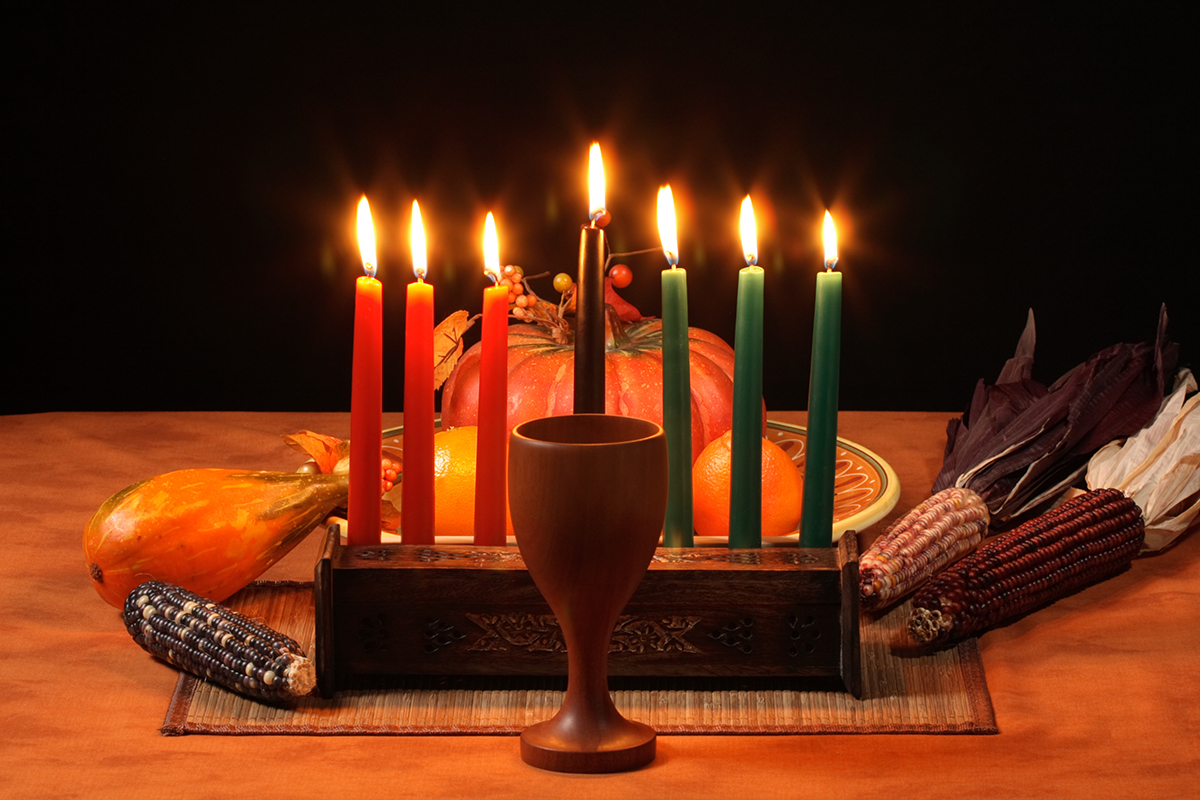Principles of Kwanzaa support health equity at Penn State Health

In reflection of the holiday season, Penn State Health looks to highlight how the principles of Kwanzaa, the annual celebration of African American culture, are related to our commitment to promote health equity and amplify community voices.
Kwanzaa is neither a political nor religious celebration and, despite some misconceptions, is not a substitute for Christmas. Created by Maulana Karenga in 1966, Kwanzaa is based on African harvest festival traditions and is observed annually from Dec. 26 to Jan. 1.
The holiday emphasizes reflection, togetherness and joyful gathering. It offers a communal immersion into African American culture as many diverse groups and ethnicities celebrate the heritage and origins of “matunda ya kwanza,” or “first fruits.”
Like the lighting of the menorah at Hanukkah and Advent candles before Christmas, Kwanzaa uses the imagery of light to represent bringing light into the world. During Kwanzaa, a kinara holds candles representing the seven principles of Umoja (unity), Kujichagulia (self-determination), Ujima (collective work and responsibility), Ujamaa (cooperative economics), Nia (purpose), Kuumba (creativity) and Imani (faith).
How we apply the principles of Kwanzaa to promote health equity
When addressing health equity, Penn State Health takes a systemwide approach that aligns with our mission to continually improve the health and well-being of the those we serves. The Penn State Health community has many opportunities to recognize and implement the values of Kwanzaa as we promotes patient-centered care and health equity in our daily work:
- Umoja – We find unity embedded in the health system’s mission, vision and values.
- Kujichagulia – We support self-determination by promoting and implementing patient-centered best practices, allowing our patients to have their voices heard when receiving care.
- Ujima – Much like the Penn State University cheer “We Are,” collective work and responsibility encourages us to build and maintain our community and to solve needs together. We can support the principle of Ujima and foster health equity by being accessible to everyone in all the communities we serve.
- Ujamaa – One way we support cooperative economics is through our Cultivation Health Empowerment series. These programs promote healthy lifestyles through education, food, nutrition and empowerment so those in the communities we serve can live healthy lives.
- Nia – We can honor the principle of purpose by encouraging our patients to be of service to their family and their communities and empower others to do the same during the holiday season.
- Kuumba – The diversity of our workforce leads to increased creativity and innovation by helping us break out of bias, question ideas and support growth to help our diverse patient population.
- Imani – One way we support the principle of faith is through our PRAPARE tool, which assesses for nonmedical factors, such as education, environment and access to care, that can affect a person’s health. Understanding these factors and what matters in each of our patient’s lives is key as we collectively work to enhance their health.
For more information on how Penn State Health promotes health equity, contact the Office for Diversity, Equity and Inclusions at diversity@pennstatehealth.psu.edu.
If you're having trouble accessing this content, or would like it in another format, please email Penn State Health Marketing & Communications.
